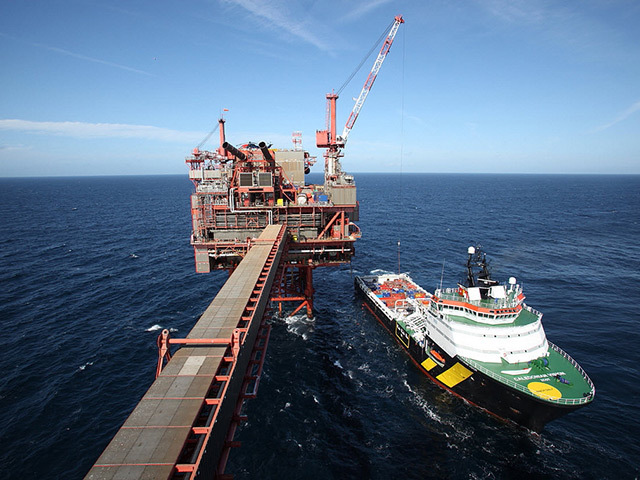
The Scottish and UK governments are in the midst of a “tricky” balancing act over the future of the North Sea oil and gas industry, it has been claimed.
The insight was made after First Minister Nicola Sturgeon unveiled a £5million start-up fund for decommissioning offshore installations across the UK Continental Shelf in the years to come.
The move came just hours after Royal Dutch Shell submitted draft proposals to Whitehall on how it plans to take four Brent platforms out of service.
Analyst Ben Wilby of Douglas Westwood broke down the implications of the fund – and how it fits into both short and long term government strategies.
He said: “The £5million is a good start.
“It’s mostly going to be used for upgrading ports and that’s essential work.
“When you consider the amount of tonnage that there is in the North Sea, there are not enough yards in the UK that can deal with that.
“Being able to convert more disused dockyard space into onshore deconstruction yard and having the money set aside to do that is a good idea.
“It all depends on what other money is to come. It is very early days and the government is well aware how much they are liable for.”
The energy industry analyst said that the Scottish Government fund is an attempt to corner the decomm market and anchor the associated skills and infrastructure in the country.
Wilby added: “This is the first sign that the government have thought about decommissioning and making sure they can get the most out of it.
“It’s very tricky for the governments as they need to tow the line between making sure decommissioning activities run smoothly while keeping these fields going as long as possible. It’s almost like a conflict of interest.”
And the number cruncher said in most cases, the decision comes down to the bottom line on the spreadsheet.
He said: “A lot of these fields have been producing for nearly 40 years. You need to do a lot to them for a reasonable return.
“That’s fine if it doesn’t make economic sense for one year or two years.
“But when you are talking ten years you can understand why the operators wouldn’t want to keep it running.”
Recommended for you
